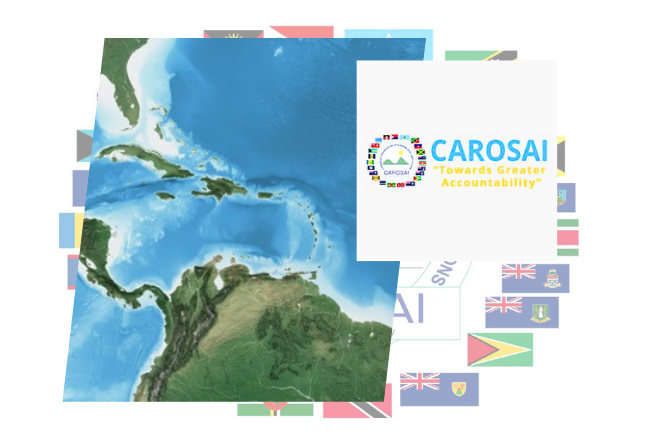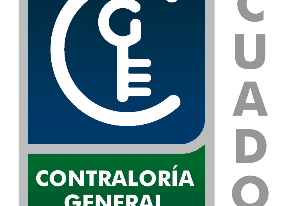CAROSAI Identifies Small Island Challenges in the Region, Highlighting the Need for Resources and SAI Independence

By: Caribbean Organization of Supreme Audit Institutions (CAROSAI)
Introduction
Public sector auditing on small islands presents unique challenges, ranging from limited resources and capacity constraints, to susceptibility to national and environmental disasters, highlighting the complexity of ensuring accountability and transparency in these geographically constrained and vulnerable regions.
The Caribbean Organization of Supreme Audit Institutions (CAROSAI) conducted a review of 23 Supreme Audit Institutions (SAIs) and published a report in June 2022 on small island challenges. This article provides a summary and overview of the findings found in the report.
About the CAROSAI SAIs
CAROSAI consists of twenty-three members, twenty-one of which are listed by UNESCO as Small Island Developing States (SIDS), with one of the SIDS considered a least developed country. The income of most of the Caribbean Countries is mainly from tourism with a few having natural resources as their main income earner. Due to the vulnerability of natural disasters in the Caribbean, there is always some damage to capital infrastructure which forces the Government to divert spending to repairing damages and rebuilding the infrastructure. Every year at least ten to 15 hurricanes pass through the Caribbean and the Gulf of Mexico, and in recent times Volcanoes have erupted.
Most of the CAROSAI SAIs gained independence over the last 50 years, and most SAIs have staffing levels ranging from 4 to 49 employees. Although the SAI can be classified based on its staff size, there are limitations to what audits can be performed. For example, although Haiti is largest SAI by staffing levels in CAROSAI with 660 employees as of 2022, the SAI does not conduct performance audits.
Challenges
CAROSAI identified eleven key challenges faced by most of their members:
- Low Gross Domestic Product (GDP): Small islands always have the limitation of financial resources, and with the onset of the COVID-19 pandemic, coupled with the war in Ukraine and the rising costs of gas/oil, governments of small islands have had to cut expenses to prioritise spending for economic growth and social stabilisation programmes. Although some countries may boost their economies by borrowing from the IMF, the funding comes with conditions and rules, which often include recommendations for governments to cut their wage bill. As such, many Government offices including an SAI become short staffed, which results in less time for staff to participate in internal or external training courses and therefore limit their ability to perform effectively.
- Lack of sufficient finances and professional expertise to train, educate and retain professional staff: The survey of members done in 2020 at the onset of COVID-19 revealed that all SAIs require support in the areas of training and Information Technology (IT). Specifically, key areas of need include training on remote auditing, data analytics, guidelines on how to conduct more effective audits and understanding audit programs. SAIs expressed the need for support in obtaining additional portable computers, better internet access, availability of government data, as well as data protection and security. Government inability to provide sufficient finances and professional expertise to train, educate and retain professional staff is attributed to the countries’ low GDP.
- Unqualified staff: SAIs are challenged with attracting and retaining qualified and specialized staff. The lower level of wages in the public sector compared to the private sector diminishes the SAI’s capacity to attract and retain persons with specialized skills and experience in areas such as IT, economics, procurement, and engineering.
- Low population density: Due to low population density, the SAI will not be exposed to some specific areas of audit, as the need for some types of audits may not be required and some are also not within the capacity of the country. Auditors will be limited in capacity due to lack of experience.
- Vulnerability to National Disasters: The region is particularly vulnerable to natural disasters in particular, hurricanes and volcanoes. The effects of natural disasters in poorer countries that depend heavily on tourism, infrastructure, and agriculture can be extremely disastrous for its economy, and presents additional challenges to public sector auditing.
- Lack of independence: SAIs do not have the authority to act independently on most of its important tasks such as, recruitment, budgeting, choice of audit entity, and publishing of reports. Recruitment of some smaller SAIs is done through Central Government as it is most cost effective to have only one Human Resource Unit within all of Government instead of various Human Resource Department in each Government Agency/Department. Consequently, the skills and attributes of officers assigned to the Audit Office, do not always align with the needs of the Audit Office. As a result, the officers fail to carry out their responsibilities effectively and efficiently. SAIs do not have autonomy over what they spend, so although there may be needs within the SAI it is left to the discretion of the Finance Department/Ministry to provide the funds.
- Technological Challenges: Many small SAIs do not have staff with specialized skills in IT, and due to centralisation, most small SAIs rely on the government’s IT Department for their IT related tasks and activities. The reliance on paper documentation to conduct audits also poses a challenge. During the lockdown period of the COVID-19 pandemic, a number of government offices were closed for a period, making remote auditing a challenge, as records and documents that were needed could not be accessed electronically.
- Lack of IT equipment and software: All twenty-three SAIs indicated that they required more IT equipment and software to be more effective in both the field work and in developing the final report. Some SAIs were closed during the initial stage of the pandemic because they were unable to continue operations without remote access to information. SAIs expressed the need for support in obtaining additional portable computers, better internet access, availability of government data, as well as data protection and security.
- Absence of Audit Act: This relates mostly to dependent countries. Although the Constitution is the main mandate for the SAIs, there are aspects that are not addressed within and there is clearly a need for the Act which would entail more detail regulations. Passage of the National Audit Bill is outside the remit of the SAI and the dependency is on others for the SAI to become a statutory agency.
- Nonfunctioning Public Accounts Committees: Audit reports are submitted to Parliament or the Office of the Cabinet for onward submission to the Public Accounts Committee (PAC) for discussion. However, some SAIs do not have regular PAC meetings and therefore, the citizens and stakeholders are not made aware of what is happening within a Government Agency/Ministry. Where there appears to be no accountability citizens lose faith in the system. CAROSAI, through Caribbean Common Market (CARICOM), will seek the audience of all Heads of Government to encourage them to promote meetings of the PAC and to encourage finalization of the Audit Act.
- No Focus on Stakeholder Engagement: In 2020 at the time of the CAROSAI Survey on the Effect of the COVID-19 Pandemic on SAIs, only eight of the twenty-three SAIs had a Stakeholder Engagement Plan. Since, CAROSAI has aimed to support the development of Stakeholder Engagement Plans for each SAI.
Conclusion
CAROSAI SAIs face challenges that are similar to other small island SAIs around the world. As is seen in the challenges as well as the results shared from the survey, many SAIs in the Caribbean region have limited resources to carry out their mandate and to be fully independent.
Many of these SAIs experience limitations with their financial, staffing, and technological resources to be effective and meet their mandates. Only a few SAIs have control over their budget formulation. Attracting and retaining skilled staff continues to be a challenge, and many SAIs in the region were unable to function during the lockdown period of the COVID- 19 pandemic, as they were not technologically equipped.
It is important, according to the INTOSAI Development Initiative’s 2020 Global Stocktaking (GS) Report that “for SAIs to be effective, credible institutions that deliver on their mandate, they need to be independent from the audited entity (Executive) both in terms of de Jure and de facto SAI independence”. All CAROSAI SAIs have some elements of independence, but none have full independence. Some SAIs have indicated the absence of an Audit act, which can impair the relevance of the audit entity. CAROSAI SAIs do not always have appropriate mechanisms for following up on audit findings and recommendations, and could benefit from tools that track the implementation of their recommendations, an important gauge of the effectiveness of SAIs.
The UN SAMOA Pathway and UNESCO note that “Small Island Developing States (SIDS) remain a special case for sustainable development. We recognize the ownership and leadership of SIDS in overcoming some of these challenges, but stress that, in the absence of international cooperation, success will remain difficult.”
Although the journey ahead to alleviate the impacts of small island challenges is long, CAROSAI aims to face them head on through preparing training programmes for CAROSAI members, seeking sponsorship on providing IT resources and training for SAI staff, and developing a mandate for SAI independence within CAROSAI. It is imperative that the foregoing challenges are addressed quickly by the respective Governments, as well as through international cooperation, including INTOSAI and CAROSAI-led initiatives with the assistance of Donor Funded Agencies.
Read the full CAROSAI report here.





